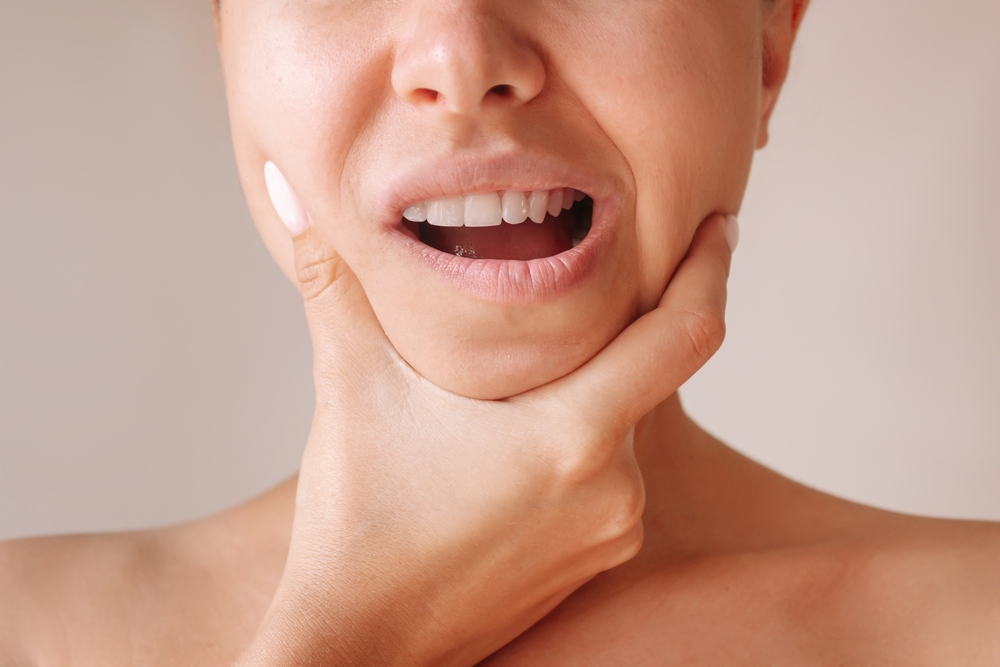Understanding the Common Causes of Toothaches
Comprehending the usual reasons for toothaches is crucial for prompt identification and urgent care. Some of these reasons include decay and cavities, gum disease, tooth abscess, cracked or fractured teeth, and impacted wisdom teeth.
Decay often starts when acid generated by bacteria eats away at the tooth’s surface, leading to a cavity. If not addressed, this harm could be the source of a toothache. Gum disease, brought on by plaque accumulation, can lead to inflamed gums or periodontitis; both situations can cause discomfort.
A tooth abscess—commonly a result of advanced decay or gum disease—can generate severe pain due to the infection reaching the pulp tissue. Fractures or cracks in teeth can also cause pain. Impacted wisdom teeth that press against other teeth beneath the gums can also be a source of toothache.
Understanding these various causes can help in identifying the underlying issue and seeking appropriate dental care.
Identifying Emergency Toothache Symptoms
Recognizing signs that point to a dental emergency includes the acknowledgment of severe, persistent pain; inflammation and swelling; bleeding and the release of pus; trouble with chewing or biting; and the presence of fever and headache. These symptoms are alarming signals in dental emergencies, highlighting the dire need for professional help.
It’s important to note that toothache can vary from mild to extremely severe, often worsening if not treated in a timely manner. Excessive pain and discomfort beyond normal levels suggest a possible emergency that calls for immediate medical attention.
Trouble chewing or biting is another critical sign that hints at underlying problems such as abscesses or infections. Fever and headaches, being systemic signs, depict a level of severity that goes beyond just oral health issues.
Recognizing these emergency toothache symptoms accurately can play a crucial role in reducing further damage during dental emergencies.
The Importance of Seeking Immediate Dental Care
Immediate dental care is vital in mitigating serious oral health problems such as infections and abscesses. If a dental abscess is not treated promptly, it can lead to severe complications, highlighting the necessity of immediate dental attention. A dental emergency demands a quick visit to a dentist for diagnosis and treatment.
| Possible Repercussions | Result of Non-Treatment |
| Extreme Pain | Worsening discomfort |
| Tooth Loss | Irreversible harm |
| Spread of Infection | Risk to overall health |
| Formation of Abscess | Heightened complexity |
| Complications | Extensive care needed |
Being proactive in seeking emergency dental care can halt further damage, relieve pain quickly, maintain tooth health, and stop the spread of infection. Hence, it is crucial to understand when a toothache constitutes a dental emergency for overall health and oral care.
Steps to Take in a Dental Emergency
During a dental emergency, certain actions can be carried out to handle the situation until professional dental aid is available. These measures include reaching out to a dentist promptly, washing the mouth with warm salt water, applying a cold compress to lessen swelling, and resorting to over-the-counter painkillers if necessary. These steps are crucial in handling the situation until professional dental aid is available.
When dealing with an infected tooth, immediate communication with a dentist is essential for prompt treatment. The dentist might suggest a root canal procedure depending on how severe the infection is.
To mitigate pain and avoid additional problems, there are several steps that can be taken. Gargling with warm salt water aids in calming the pained area. Using a cold compress helps in bringing down swelling. Over-the-counter pain relievers offer temporary respite.

Taking these preliminary steps ensures that major damage is averted while waiting for professional dental help.
Prevention Tips to Avoid Dental Emergencies
Preventing dental emergencies in New Braunfels, TX, is possible through the adoption of certain habits. These include maintaining excellent oral hygiene, regular visits to the dentist in New Braunfels, TX, using a mouthguard during sports, and abstaining from chewing on hard items.
These tips for avoiding dental emergencies play a critical role in reducing the risk of issues such as gum abscesses and toothaches, which could potentially become emergencies. Regular habits of brushing and flossing in New Braunfels, TX, limit plaque accumulation that leads to tooth decay and gum diseases.
Regular dental check-ups in New Braunfels, TX, facilitate early detection and intervention for any potential problems. The use of a mouthguard offers protection against injuries, especially in contact sports. Avoidance of hard objects helps to avert the chipping or cracking of teeth, which could result in intense pain or infection. Prevention remains essential in managing dental health in New Braunfels, TX.

